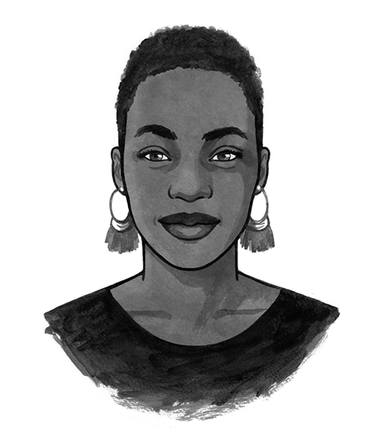When I started as Othering correspondent, I was eager to have members share intellectually surprising gems with me in my inbox or in the contribution section. Already, members have given me the gift of great literature via The Other Shelf, the online book club I started. Our first book of the month, The Land of Open Graves, inspired my subsequent investigation into undocumented migration, borders, and colonial legacies.
Recently, I got another gift in the form of an illuminating email about social borders. Sent by Fons Sarneel, it was, in part, an exploration of cultures in which “to seem is […] more important than to be". In his rumination on perception, language, and being forgotten by your own community, Sarneel used a phrase which makes me want to write a novel full of lyrical, quotable sentences: “Living in the eyes of others”.
The phrase set off a series of questions in my mind about the many ostensibly benign social pressures that, for some people, combine to create a crushing, inescapable weight. What might it mean to “live in the eyes of others”? In many ways, we all exist not only as ourselves but also as who people perceive or imagine us to be. We all are formed and informed by our social interactions.
Perhaps even, there is nothing more human than the social contract that guides those interactions. When the terms of the contract become a straitjacket, however, the social requirement to “live in the eyes of others” can become a matter of survival.
Today, most societies have willingly moved toward, or been co-opted into, the global order described by bell hooks as “the imperialist capitalist white supremacist patriarchy”. This system of extraction and exploitation sets out rigid understandings of what it means to be a “normal” human being, and people’s wellbeing is often determined by how closely they hew to those ideas.
The limits of normalcy are drawn by violence, resource distribution, and language. Consider, for instance, the ubiquity of metaphors that rely on blindness. A good one to start with might even be that lyrical phrase a member gifted me: “living in the eyes of others”. Linguistically, blindness is often imbued with unwarranted negative connotations. Structurally also, the lives of people who are blind or visually impaired are made unnecessarily difficult by their societies’ refusal or failure to understand and accommodate them as they are.
This is due to ableism, which is “discrimination and social prejudice against people with disabilities or who are perceived to have disabilities”. Like all systems of exclusion, ableism functions by defining an acceptable way of being and inflicting varying degrees of indignity on those who do not fit. According to Jessica Naert, a Transition Vocational Rehabilitation Counsellor, who has retinitis pigmentosa, “It’s not the actual condition or disability itself that is the limiting factor, it’s society’s perception and treatment of people with disabilities”.
Many disabilities make it impossible for people to satisfactorily perform "normalcy", as defined by ableist standards. But disability isn’t the only personal characteristic that precludes some people from being able to live optimally; there are many identities which are devalued by modern hierarchies. For people with such marginalised identities, there is little or no social space to exist safely or access the same resources as those deemed ‘normal’, unless they hide or minimise who they are.
There are many personal characteristics can make it difficult for people to be who they are, rather than having to work to seem like something they are not. But instead of forcing people to “live in the eyes of others” just to survive, we can learn to make space for their full humanity. After all, with more than seven billion people on the planet, it seems clear that there can be no set way to be “normal”.
By regarding people primarily as people, no matter their identity, we make it easier for them to live – not in our eyes, but simply as themselves.


